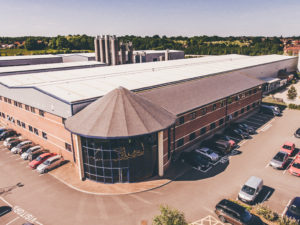
Creating a people-first culture
As Liniar breaks ground realising ambitious expansion plans, its Human Resources (HR) department continues to play an important…

Liniar’s Group Managing Director Martin Thurley discusses the complex challenges facing the fenestration industry in 2020 and beyond.
We’re in the midst of a pandemic – something not seen on this scale for more than a century. It’s gripped the entire globe and has been at the forefront of our minds for many months now, but this isn’t the only challenge we face as we move through 2020 and into the future.
Obviously, our coronavirus response is the most urgent. We need to keep our employees, visitors and families safe whilst still trying to keep business ticking over, maintain social distancing and keep facilities properly cleaned to ensure the virus is not spread throughout the workforce.
While we do these things, another more long-term challenge faces us – one that was high on the agenda before coronavirus and one we must not lose sight of: climate change.
Working together to make a difference
As an industry, we are in a unique position to make positive contributions to the discussion surrounding sustainability, climate change and net zero emissions by 2050. What’s critical for the foreseeable future is maintaining a balance between the challenge of remaining healthy and successful throughout the coronavirus and the problems it presents through social distancing measures and economic turmoil and ensuring that we’re still making positive movements forward in ensuring that the industry as a whole lowers its carbon emissions.
After months of distressing loss and sickness throughout the world, furloughed employees, businesses with closed doors and an unprecedented intervention to prop up the economy by the government, our response to the coronavirus must take precedence – but that doesn’t mean that we push climate change measures to the back burner. The coronavirus will continue to impact our lives and businesses for months to come.
Recession, recovery and moving towards 2050 targets
The stark reality of the depth of the recession which will follow the coronavirus pandemic is not clear yet – and the economic crisis we’re in the midst of is very likely to impact us for some time. This economic turmoil is likely to disrupt the processes and projects put in place to shrink the carbon footprint of some businesses – but there are things that can still be done.
Long before the coronavirus was an issue, the government was considering building regulations that would require all new build properties to have a low carbon footprint. The reality of this is that most homes that will be lived in when the 2050 deadline arrives have already been built. What about all the existing properties with large carbon footprints? Those should be the ones that we concentrate on, to help bring down our total emissions.
There are tens of millions of existing properties in the UK which will need retrofitting to bring them into line with the zero-emissions target for 2050. These improvements are likely to be costly and customers need not only the money but the confidence to spend during this period in order to make these changes. With the current forecasts for GDP that looks quite unlikely – which is why the government needs to help make these retrofits to existing properties a reality.
Making a green future a reality
The coronavirus economic intervention was something not seen since World War II, and it is quite possible that because of the economic fallout from lockdown, more intervention may be a necessity.
Outside of the calls for action over the response to the coronavirus are those calling for a ‘green recovery’ and for the country to remain focused on bringing carbon emissions in line, towards our target for 2050. As an industry, it’s essential that we lend our voices to these calls for action. In line with our sister company Edgetech and the GGF, Liniar agrees that the fenestration and construction industries should lobby the government to provide grants to homeowners looking to retrofit properties, together with reducing VAT on the purchase of more energy-efficient windows and doors.
For the UK to realistically hit the ambitious target in 2050 it will require the government’s help along with additional regulations to be set for new build properties. Without grants and greener regulations, the impacts of global warming could be catastrophic.
‘But lockdown has helped the environment!’
While it’s true we’ve seen a sharp decrease in emissions throughout the lockdown, in places where lockdowns have been lifted – like China – emissions are already back to their pre-lockdown levels. These improvements to the environment may be short-lived but they are also a peek into what the world could look like if emissions from the millions of cars and flights, and industry pollution was brought down to Net Zero.
To make a substantial impact to climate change and the devastating impacts it could have (not only to the UK but to the whole world) is to make fundamental changes to our economy, the regulations under which we build properties and our infrastructure. This may need to be led from the start by the government, but we have a duty of care to be a part of that as an industry. Only then can we hope to stem the changes created by greenhouse gas emissions and global warming.

As Liniar breaks ground realising ambitious expansion plans, its Human Resources (HR) department continues to play an important…

September 2023 saw fabricator-installer Rooms and Views (R&V) winning a Taylor Wimpey North West Achievement Award in the…

Leading UK systems company Liniar recently announced it is breaking ground on ambitious growth plans, which include doubling…